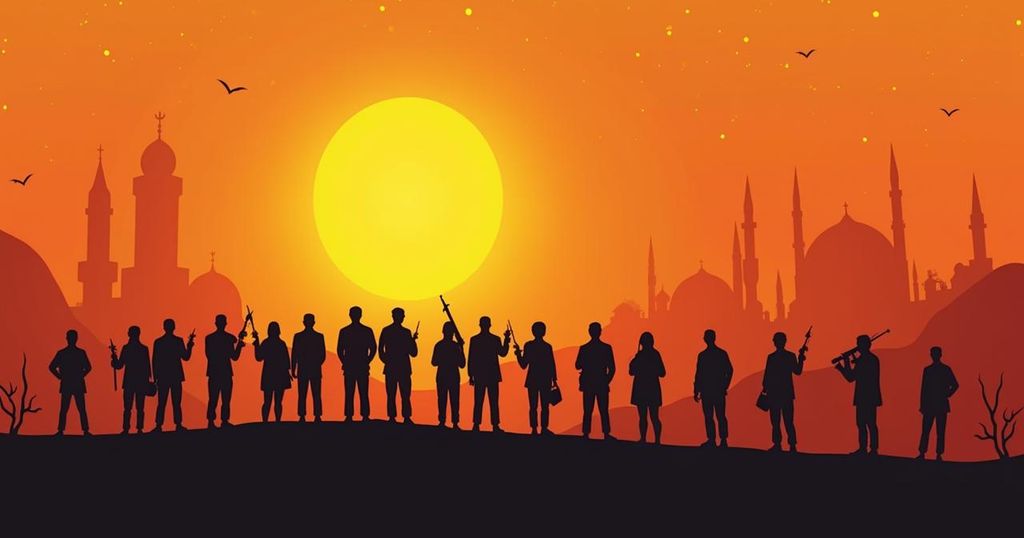Future Prospects of Conflict in the Middle East: Expert Insights

As Israeli operations escalate, fears of broadening conflict in the Middle East grow. Experts examine Israel’s objectives to neutralize Hezbollah, the shifting power dynamics favoring Israel at the expense of Iranian influence, and the potential dangers of Iran pursuing nuclear capabilities. The lack of a political strategy for Gaza complicates Israel’s military ambitions. The upcoming U.S. presidential election may influence Israel’s actions, yet diplomatic solutions remain crucial to avert wider conflict.
The ongoing conflict in the Middle East has entered a critical juncture, with recent escalations such as Israel’s ground invasion of southern Lebanon on October 1 and Iran’s missile strikes targeting Israel. This has heightened concerns about a broader regional confrontation amidst the continuing war in Gaza. Various experts have offered insights regarding the possible direction of these developments and Israel’s objectives, particularly in relation to Hezbollah and the shifts in power dynamics in the region. Israel’s current military strategy appears to have evolved from simply weakening Hezbollah to neutralizing its capabilities entirely. However, the loss and damage inflicted on Hezbollah do not guarantee its disappearance. Although Israel aims to restore security for its northern territories, it also faces a complex scenario with elements within its government advocating for expanded military ambitions. There’s a pressing need for Israel to ensure the safety of approximately 60,000 displaced residents in northern Israel while re-establishing the Lebanese government’s authority over Hezbollah, which has historically proven challenging. Simultaneously, the battle for control and influence among Iran, Hamas, and Hezbollah is shifting, indicating a potential weakening of Iran’s presence in the region. Experts caution that while Israel may achieve tactical advantages, converting these into significant strategic gains through diplomatic efforts remains uncertain. The long-standing mutual deterrence that characterized Israeli-Iranian dynamics appears disrupted, creating a fluid power landscape. The potential for Iran to pursue nuclear capabilities is heightened as its traditional means of deterrence falter due to the ineffectiveness of its proxies. The Iranian leadership is acutely aware of the existential threat posed by a potential Israeli strike on its nuclear program and may perceive pursuing nuclear arms as a critical countermeasure. Despite Israel’s military advancements, the spread of conflict may hinder its objectives in Gaza. Growing dissent among populations sympathetic to the Palestinian cause complicates prospects for future peace. Experts assert that Israel lacks a political strategy to establish a governing alternative in Gaza, an absence that exacerbates the ongoing military conflict. Looking ahead at prospects for influencing the Israeli military operation, the role of the upcoming U.S. presidential election is considered significant. While any American president can exert influence over Israel, historical precedents suggest reluctance to do so, particularly given the political dynamics within the U.S. regarding support for Israel. To avert wider conflict, experts propose that diplomacy must take precedence over military actions. Two primary off-ramps are suggested: a ceasefire agreement in Gaza that allows for humanitarian aid and a reconfiguration of Palestinian governance, and a truce in Lebanon wherein Hezbollah ceases attacks in exchange for halted Israeli operations. The viability of these solutions depends greatly on international engagement and the willingness of influential nations, particularly the U.S., to reshape the current trajectory of conflicts in the Middle East.
The recent escalations in the Middle East, marked by Israel’s military actions in Lebanon and Iran’s missile launches, emerge within a long-standing history of conflict stemming from territorial disputes and ideological rifts. The article addresses the implications of Israel’s military strategy against Hezbollah, the evolving geopolitical landscape in the region, and the potential actions of Iran regarding its nuclear ambitions. The context is critical as it encapsulates the tensions that have historically driven the dynamics of Israeli and Iranian relations, especially through proxies such as Hamas and Hezbollah.
The ongoing situation in the Middle East is fraught with complexities, as military actions taken by Israel raise questions about achieving long-term stability and peace. The precarious balance of power appears to be shifting, with implications for Iran’s nuclear aspirations and regional influence. Without a clear political strategy or humanitarian considerations, the paths toward conflict resolution remain tenuous, necessitating a diplomatic approach to prevent further escalation.
Original Source: www.bbc.com








